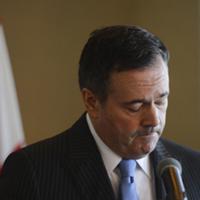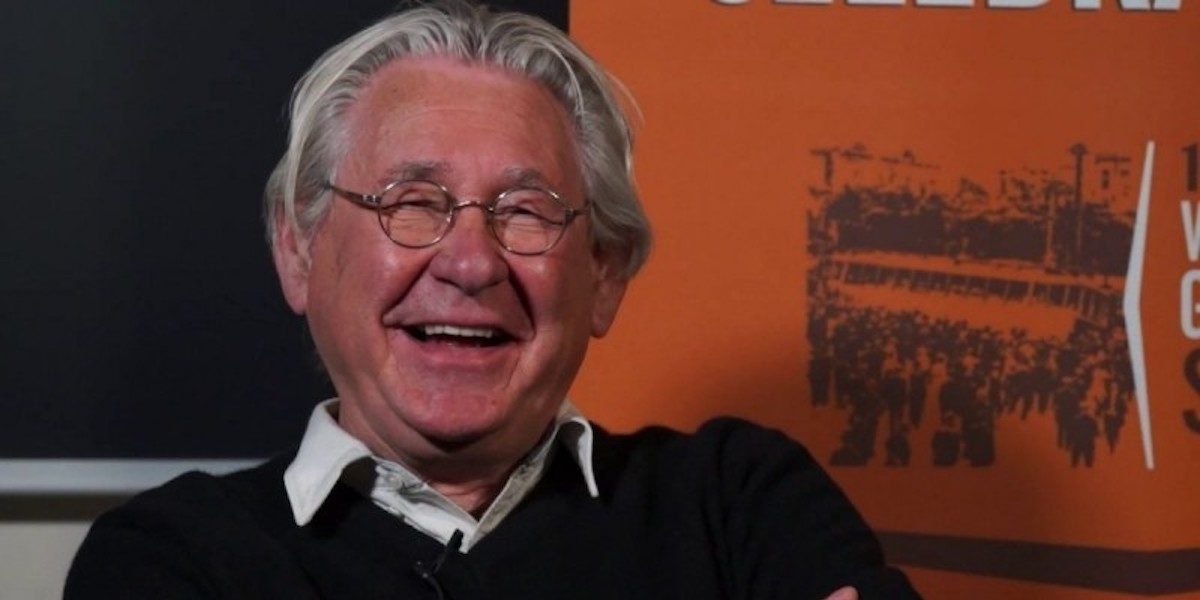BY SLAVOJ ŽIŽEK JACOBIN
Slavoj Žižek writes in Jacobin today that we've been given a choice between a return to the old exploitative normality and a post-COVID corporate "Great Reset" that promises to be even worse. We need a real alternative, a socialist reset that can win justice for all and save the planet from climate apocalypse.
Back in April 2020, reacting to the COVID-19 pandemic, Jürgen Habermas pointed out that “existential uncertainty is now spreading globally and simultaneously, in the heads of medially-wired individuals themselves.” He continued, “There never was so much knowing about our not-knowing and about the constraint to act and live in uncertainty.”
Habermas is right to claim that this not-knowing does not concern only the pandemic itself — we at least have experts there — but even more its economic, social, and psychic consequences. Note his precise formulation: it is not simply that we don’t know what goes on, we know that we don’t know, and this not-knowing is itself a social fact, inscribed into how our institutions act.
We now know that in, say, medieval times or early modernity they knew much less — but they didn’t know this because they relied on some stable ideological foundation which guaranteed that our universe is a meaningful totality. The same holds for some visions of Communism, even for Francis Fukuyama’s idea of the end of history — they all assumed to know where history is moving. Plus, Habermas is right to locate the uncertainty into “the heads of medially-wired individuals”: our link to the wired universe tremendously expands our knowledge, but at the same time it throws us into radical uncertainty (Are we hacked? Who controls our access? Is what we’re reading there fake news?). Viruses strike in both meanings of the term, biological and digital.
When we try to guess how our societies will look after the pandemic will be over, the trap to avoid is futurology — futurology by definition ignores our not-knowing. Futurology is defined as a systematic forecasting of the future from the present trends in society. And therein resides the problem — futurology mostly extrapolates what will come from the present tendencies. However, what futurology doesn’t take into account are historical “miracles,” radical breaks which can only be explained retroactively, once they happen.
We should perhaps mobilize here the distinction that works in French between futur and avenir: “Futur” is whatever will come after the present while “avenir” points toward a radical change. When a president wins reelection, he is “the present and future president,” but he is not the president “to come” — the president to come is a different president. So will the post-corona universe be just another future or something new “to come”?
It depends not only on science but on our political decisions. Now the time has come to say that we should have no illusions about the “happy” outcome of the US elections, which brought such a relief among the liberals all around the world. John Carpenter’s They Live (1988), one of the neglected masterpieces of the Hollywood left, tells the story of John Nada — Spanish for “nothing” — a homeless laborer who accidentally stumbles upon a pile of boxes full of sunglasses in an abandoned church. When he puts on a pair of these glasses while walking on a street, he notices that a colorful publicity billboard soliciting us to enjoy chocolate bars now simply displays the word “OBEY,” while another billboard with a glamorous couple in a tight embrace, seen through the glasses, orders the viewer to “MARRY AND REPRODUCE.”
He also sees that paper money bears the words “THIS IS YOUR GOD.” Additionally, he soon discovers that many people who look charming are actually monstrous aliens with metal heads… What circulates now on the web is an image which restages the scene from They Live apropos Joe Biden and Kamala Harris: seen directly, the image shows the two of them smiling with the message “TIME TO HEAL”; seen through the glasses, they are two alien monsters and the message is “TIME TO HEEL”…
This is, of course, part of the Trump propaganda to discredit Biden and Harris as masks of anonymous corporate machines which control our lives. However, there is (more than) a grain of truth in it. Biden’s victory means “future” as the continuation of the pre-Trump “normality” — that’s why there was such a sigh of relief after his victory. But this “normality” means the rule of anonymous global capital which is the true alien in our midst.

I remember from my youth the desire for “socialism with a human face” against Soviet-type “bureaucratic” socialism. Biden newly promises global capitalism with a human face, while behind the face the same reality will remain. In education, this “human face” assumed the form of our obsession with “well-being”: pupils and students should live in bubbles that will save them from the horrors of external reality, protected by Politically Correct rules.
Education is no longer intended to have a sobering effect of allowing us to confront social reality — and when we are told that this safety will prevent mental breakdowns, we should counter it with exactly the opposite claim: such false safety opens us up to mental crises when we have to confront our social reality. What “well-being activity” does is that it merely provides a false “human face” to our reality instead of enabling us to change this reality itself. Biden is the ultimate “well-being” president.
So why is Biden still better than Trump? Critics point out that Biden also lies and represents big capital, only in a more polite form — but, unfortunately, this form matters. With his vulgarization of public speech, Trump was corroding the ethical substance of our lives, what Hegel called Sitten (as opposed to individual morality).
This vulgarization is a worldwide process. Take the European case of Szilárd Demeter, a ministerial commissioner and head of the Petőfi Literary Museum in Budapest. Demeter wrote in an op-ed in November 2020, “Europe is George Soros’ gas chamber. Poison gas flows from the capsule of a multicultural open society, which is deadly to the European way of life.” He went on to characterize Soros as “the liberal Fuhrer,” insisting that his “liber-aryan army deifies him more than did Hitler’s own.”
If asked, Demeter would probably dismiss these statements as rhetorical exaggeration; this, however, in no way dismisses their terrifying implications. The comparison between Soros and Hitler is deeply antisemitic: it puts Soros on a level with Hitler, claiming that the multicultural open society promoted by Soros is not only as perilous as the Holocaust and the Aryan racism that sustained it (“liber-aryan”) but even worse, more perilous to the “European way of life.”
So is there an alternative to this terrifying vision, other than Biden’s “human face”? Climate activist Greta Thunberg recently offered three positive lessons of the pandemic: “It is possible to treat a crisis like a crisis, it is possible to put people’s health above economic interests, and it is possible to listen to the science.”
Yes, but these are possibilities — it’s also possible to treat a crisis in such a way that one uses it to obfuscate other crises (like: because of the pandemic we should forget about global warming); it’s also possible to use the crisis to make the rich richer and the poor poorer (which effectively happened in 2020 with an unprecedented speed); and it’s also possible to ignore or compartmentalize science (just recall those who refuse to take vaccines, the explosive rise of conspiracy theories, etc.). Scott Galloway gives a more or less accurate image of things in our corona time:
We are barrelling towards a nation with three million lords being served by 350 million serfs. We don’t like to say this out loud, but I feel as if this pandemic has largely been invented for taking the top 10% into the top 1%, and taking the rest of the 90% downward. We’ve decided to protect corporations, not people. Capitalism is literally collapsing on itself unless it rebuilds that pillar of empathy. We’ve decided that capitalism means being loving and empathetic to corporations, and Darwinist and harsh towards individuals.
So which is Galloway’s way out, how should we prevent social collapse? His answer is that “capitalism will collapse on itself without more empathy and love”: “We’re entering the Great Reset, and it’s happening quickly. Many companies will tragically be lost to the economic fallout of the pandemic, and those that do survive will exist in a different form. Organizations will be far more adaptable and resilient. Distributed teams currently thriving with less oversight will crave that same autonomy going forward. Employees will expect executives to continue leading with transparency, authenticity, and humanity.”
But, again, how will this be done? Galloway proposes creative destruction that lets failing business fail while protecting people who lose jobs: “We let people get fired so that Apple can emerge and put Sun Microsystems out of business, and then we take that incredible prosperity and we’re more empathetic with people.”
The problem is, of course, who is the mysterious “we” in the last quoted sentence, i.e., how, exactly, is the redistribution done? Do we just tax the winners (Apple, in this case) more while allowing them to maintain their monopolist position? Galloway’s idea has a certain dialectical flair: the only way to reduce inequality and poverty is to allow the market competition to do its cruel job (we let people get fired), and then… what? Do we expect market mechanisms themselves to create new jobs? Or the state? How are “love” and “empathy” operationalized? Or do we count on the winners’ empathy and expect they will all behave like Gates and Buffett?
I find this supplementation of market mechanisms by morality, love, and empathy utterly problematic. Instead of enabling us to get the best of both worlds (market egotism and moral empathy), it is much more probable that we’ll get the worst of both worlds.
The human face of this “leading with transparency, authenticity, and humanity” are Gates, Bezos, Zuckenberg, the faces of authoritarian corporate capitalism who all pose as humanitarian heroes, as our new aristocracy celebrated in our media and quoted as wise humanitarians. Gates gives billions to charities, but we should remember how he opposed Elizabeth Warren’s plan for a small rise in taxes. He praised Piketty and once almost proclaimed himself a socialist — true, but in a very specific twisted sense: his wealth comes from privatizing what Marx called our “commons,” our shared social space in which we move and communicate.
Gates’s wealth has nothing to do with the production costs of the products Microsoft is selling (one can even argue that Microsoft is paying its intellectual workers a relatively high salary), i.e., Gates’s wealth is not the result of his success in producing good software for lower prices than his competitors, or in higher “exploitation” of his hired intellectual workers. Gates became one of the richest men in the world through appropriating the rent for allowing millions of us to communicate through the medium that he privatized and controls. And in the same way that Microsoft privatized the software most of us use, personal contacts are privatized by our Facebook networking, Amazon book buying, or Google searching.
There is thus a grain of truth in Trump’s “rebellion” against digital corporate powers. It is worth watching the War Room podcasts of Steve Bannon, the greatest ideologist of Trump’s populism: one cannot but be fascinated by how many partial truths he combines into an overall lie. Yes, under Obama the gap that separates wealthy from poor grew immensely, big corporations grew stronger… but under Trump this process just went on, plus Trump lowered taxes, printed money mostly to save big companies, etc. We are thus facing a horrible false alternative: a big corporate reset or nationalist populism, which turns out to be the same. “The great reset” is the formula of how to change some things (even many things) so that things will basically remain the same.
So is there a third way, outside the space of the two extremes of restoring the old normality and a Great Reset? Yes, a true great reset. It is no secret what needs to be done — Greta Thunberg made it clear. First, we should finally recognize the pandemic crisis as what it is, part of a global crisis of our entire way of life, from ecology to new social tensions. Second, we should establish social control and regulation over economy. Third, we should rely on science — rely on but not simply accept it as the agency which makes decisions.
Why not? Let’s return to Habermas with whom we began: our predicament is that we are compelled to act while we know we don’t know the full coordinates of the situation we are in, and non-acting would itself function as an act. But is this not the basic situation of every acting? Our great advantage is that we know how much we don’t know, and this knowing about our not-knowing opens up the space of freedom. We act when we don’t know the whole situation, but this is not simply our limitation: what gives us freedom is that the situation — in our social sphere, at least — is in itself open, not fully (pre)determined. And our situation in the pandemic is certainly open.
We learned the first lesson now: “shutdown light” is not enough. They tell us “we” (our economy) cannot afford another hard lockdown — so let’s change the economy. Lockdown is the most radical negative gesture within the existing order. The way beyond, to a new positive order, leads through politics, not science. What has to be done is changing our economic life so that it will be able to survive lockdowns and emergencies that are for sure awaiting us, in the same way that a war compels us to ignore market limitations and find a way to do what is “impossible” in a free market economy.
Back in March 2003, Donald Rumsfeld, then the US Secretary of Defense, engaged in a little bit of amateur philosophizing about the relationship between the known and the unknown: “There are known knowns. These are things we know that we know. There are known unknowns. That is to say, there are things that we know we don’t know. But there are also unknown unknowns. There are things we don’t know we don’t know.” What he forgot to add was the crucial fourth term: the “unknown knowns,” things we don’t know that we know — which is precisely the Freudian unconscious, the “knowledge which doesn’t know itself,” as Lacan used to say.
If Rumsfeld thought that the main dangers in the confrontation with Iraq were the “unknown unknowns,” the threats from Saddam Hussein about which we do not even suspect what they may be, what we should reply is that the main dangers are, on the contrary, the “unknown knowns,” the disavowed beliefs and suppositions we are not even aware of adhering to ourselves.
We should read Habermas’s claim that we never knew so much about what we don’t know through these four categories: the pandemic shook what we (thought we) knew that we knew, it made us aware of what we didn’t know that we didn’t know, and, in the way we confronted it, we relied on what we didn’t know that we know (all our presumptions and prejudices which determine our acting although we are not even aware of them). We are not dealing here with the simple passage from not-knowing to knowing but with the much more subtle passage from not-knowing to knowing what we don’t know — our positive knowing remain the same in this passage, but we gain a free space for action.
It is with regard to what we don’t know that we know, our presumptions and prejudices, that China (and Taiwan and Vietnam) did so much better than Europe and the United States. I am getting tired of the eternally repeated claim “Yes, the Chinese contained the virus, but at what price…” I agree that we need a Julian Assange to let us know what really went on there, the whole story, but the fact is that, when the epidemic exploded in Wuhan, they immediately imposed lockdown and put on a standstill the majority of production in the entire country, clearly giving priority to human lives over economy — with some delay, true, they took the crisis extremely seriously.
Now they are reaping the reward, even in economy. And — let’s be clear — this was only possible because the Communist Party is still able to control and regulate economy: there is social control over market mechanisms, although a “totalitarian” one. However, again, the question is not how they did it in China but how should we do it. The Chinese way is not the only effective way, it is not “objectively necessary” in the sense that, if you analyze all the data, you have to do it the Chinese way. The epidemic is not just a viral process, it is a process that takes place within certain economic, social, and ideological coordinates which are open to change.
Now, at the very end of 2020, we live in a crazy time in which the hope that vaccines will work is mixed by the growing depression, despair even, due to the growing number of infections and the almost daily discoveries of the new unknowns about the virus. In principle the answer to “What is to be done?” is easy here: we have the means and resources to restructure health care so that it serves the needs of the people in a time of crisis, etc. However, to quote the last line of Brecht’s “In Praise of Communism” from his play Mother, “It is the simple thing, that is so hard to do.”
There are many obstacles that make it so hard to do, above all the global capitalist order and its ideological hegemony. Do we then need a new Communism? Yes, but what I am tempted to call a moderately conservative Communism: all the steps that are necessary, from global mobilization against viral and other threats to establishing procedures which will constrain market mechanisms and socialize economy, but done in a way which is conservative (in the sense of an effort to conserve the conditions of human life — and the paradox is that we will have to change things precisely to maintain these conditions) and moderate (in the sense of carefully taking into account unpredictable side effects of our measures).
As Emmanuel Renault pointed out, the key Marxian category that introduces class struggle into the very heart of the critique of political economy is that of the so-called “tendential laws,” the laws which describe a necessary tendency in capitalist development, like the tendency of the falling profit rate. (As Renault noted, it was already Adorno who has insisted on these dimensions of Marx’s concept of “Tendenz” that makes it irreducible to a simple “trend.”) Describing this “tendency,” Marx himself uses the term antagonism: the falling rate of profit is a tendency which pushes capitalists to strengthen workers’ exploitation, and workers to resist it, so that the outcome is not predetermined but depends on the struggle — say, in some welfare-states, organized workers forcing the capitalists to make considerable concessions.
The Communism I am speaking about is exactly such a tendency: reasons for it are obvious (we need global action to fight health and environmental threats, economy will have to be somehow socialized…), and we should read the way global capitalism is reacting to the pandemic precisely as a set of reactions to the Communist tendency: the fake Great Reset, nationalist populism, solidarity reduced to empathy.
So how — if — will the Communist tendency prevail? A sad answer: through more repeated crises. Let’s put it clearly: the virus is atheist in the strongest sense of the term. Yes, it should be analyzed how the pandemic is socially conditioned, but it is basically a product of meaningless contingency, there is no “deeper message” in it (as they interpreted plague as a god’s punishment in the Medieval times). Before choosing the famous Virgil’s line on “acheronta movebo” as the motto of his Interpretation of Dreams, Freud considered another candidate, Satan’s words from Milton’s Paradise Lost: “What reinforcement we may gain from Hope, / If not what resolution from despair.”
If we cannot get any reinforcement from hope, if we are compelled to admit that our situation is hopeless, we should gain resolution from despair. This is how we, contemporary Satans who are destroying our earth, should react to the viral and ecological threats: instead of looking vainly for reinforcement in some hope, we should accept that our situation is desperate, and act resolutely upon it. To quote Greta Thunberg again: “Doing our best is no longer good enough. Now we need to do the seemingly impossible.”
Futurology deals with what is possible, we need to do what is (from the standpoint of the existing global order) impossible.




 Alberta Municipal Affairs Minister Tracy Allard’s Christmas post on Twitter made it appear she was in the legislature. She was in Hawaii. Photo via Twitter.
Alberta Municipal Affairs Minister Tracy Allard’s Christmas post on Twitter made it appear she was in the legislature. She was in Hawaii. Photo via Twitter.















